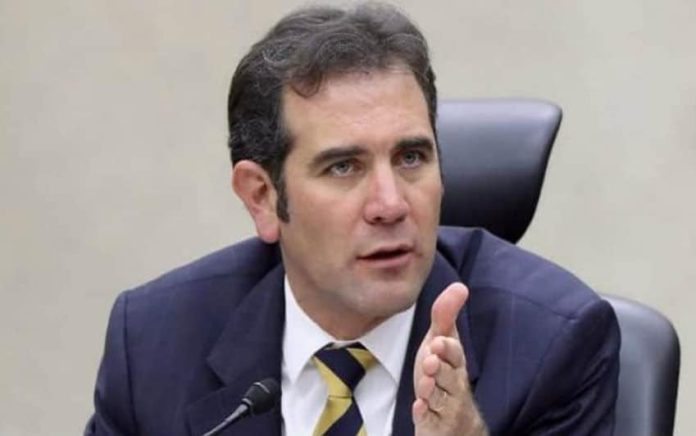Despite an upsurge in political violence that has seen at least 47 candidates assassinated during the election process that began last September, the president of the National Electoral Institute (INE) has assured the Mexican public that the July 1 elections are not at risk.
“The violence was not set off by the electoral process, it was already there and that’s one of the big national problems that as a society we have to solve . . . but that doesn’t mean that the elections are at risk of being derailed, the elections are going ahead,” Lorenzo Córdova Vianello said.
The INE president also called on authorities to guarantee security next Sunday so that citizens can go to the polls to cast their votes without incident.
“It’s important that all of the Mexican state’s security authorities, with which the INE has closely collaborated . . . carry out all of the essential public security measures so that the day of July 1 is — as it will be — a success,” Córdova said.
A range of current and former officials as well as presidential candidates have closed ranks by saying “ya basta” or “enough’s enough“ to the political — and other — violence that is plaguing the country.
The leading judge of Mexico’s top electoral court, who on Thursday condemned the violence against candidates, spoke out again on the topic yesterday in a post to her Twitter account.
“I reiterate my call to the relevant authorities to investigate and sanction the acts of violence as well as guarantee security and an election day free of violence,” Janine Otálora Malassis wrote.
The former president of the forerunner to the INE — the Federal Electoral Institute or IFE — told the newspaper El Universal that violence during the election period is a bad sign for Mexico’s electoral health and that it is reflective of a growing problem of organized crime interfering in politics.
“I’m not saying that the democratic process in Mexico is controlled by organized crime, of course not, but I am saying that in some parts of Guerrero, Oaxaca, Chiapas, Tamaulipas, Michoacán, Chihuahua — generally in rural areas — organized crime is in charge and we’re seeing that clearly,” Luis Carlos Ugalde said.
He also said that it was a “fantasy” to believe that the electoral authority could do anything to put an end to the violence.
“What can it do? What the INE has to do is manage the polling stations and that’s it,” Ugalde said.
Mauricio Merini, a former IFE electoral councilor, said that political violence could act as a disincentive for people to vote next Sunday but charged that the best response to attempts at intimidation would be for people to go out to vote en masse.
Meanwhile, at a campaign event in Tamaulipas yesterday, leading presidential candidate Andrés Manuel López Obrador blamed the violence on the “corrupt regimes” of the ruling Institutional Revolutionary Party (PRI) and the National Action Party (PAN), which held power between 2000 and 2012.
The Morena party leader, who last week said it would take a miracle to stop him from winning, urged Mexicans to get out and vote despite the prevailing climate of violence.
Second-place candidate Ricardo Anaya, of the right-left For Mexico in Front coalition, urged all candidates to “firmly resist and under no circumstance waver” in the face of threats from organized crime.
This year’s elections are the biggest in Mexico’s history, with thousands of elected positions up for grabs at municipal, state and federal level.
Apart from electing a new president for a six-year term starting in December, voters will also choose a new federal Congress and residents of nine states will vote for a new governor.
According to Bloomberg’s poll tracker, AMLO, as López Obrador is commonly known, has over 50.8% support, just over double Anaya’s 24.8%.
Ruling party candidate José Antonio Meade remains in third place in Bloomberg’s poll of polls with 21.6% backing, although he published two surveys on his Twitter account last week that showed he had passed Anaya into second place.
Independent candidate Jaime “El Bronco“ Rodríguez is in a distant fourth place with less than 4% support.
The Spanish newspaper El País said earlier this month that according to an electoral model it developed, there is a 92% probability that AMLO will win.
Source: El Universal (sp)
